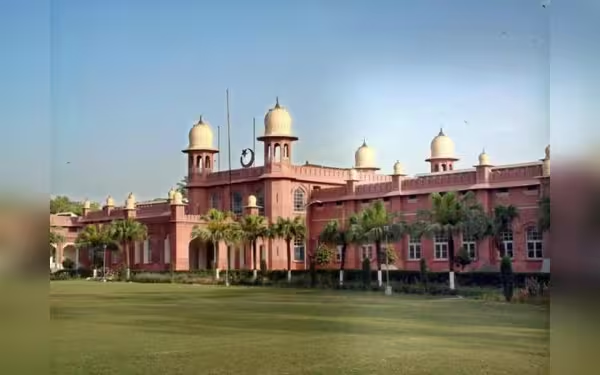Tuesday, January 28, 2025 10:49 PM
UAF Vice Chancellor Advocates Scientific Farming for Agricultural Growth
- Timely sowing enhances crop production and health.
- Soil analysis is crucial for balanced fertilizer application.
- Government initiatives support modern farming practices.
 Image Credits: urdupoint
Image Credits: urdupointUAF Vice Chancellor emphasizes scientific methods in farming to boost productivity and ensure food security during Farmers' Day event.
The agriculture sector in Pakistan plays a crucial role in the economy, providing livelihoods for millions and ensuring food security for the nation. However, to enhance productivity and profitability, it is essential to adopt modern scientific methods in farming practices. This was the central theme emphasized by the Vice Chancellor of the University of Agriculture Faisalabad, Prof Dr Muhammad Sarwar Khan, during the Farmers' Day event held at Chak No.201-RB.
During his address, Prof Dr Khan highlighted the importance of timely sowing, stating, "Timely sowing increases production and makes crops healthy." He urged farmers to shift from traditional broadcasting methods to drill sowing, which not only conserves seeds but also reduces input costs. This shift is vital for maximizing yields and ensuring that farmers can sustain their livelihoods.
Soil health is another critical aspect of agricultural productivity. Prof Dr Khan advocated for soil analysis to provide farmers with the necessary information to apply balanced fertilizers effectively. He noted that the government has initiated several projects worth billions of rupees aimed at agricultural uplift, which could significantly reduce production costs and introduce mechanization in farming.
Dr Khalid Mahmood, Director of Extension, shared insights on the Punjab Chief Minister's special agricultural package designed to promote wheat cultivation. This package includes providing farmers with green tractors, laser land levelers, and other incentives, which are essential for modernizing farming practices. Additionally, farmers can access interest-free loans through Kisan cards, helping them acquire necessary agricultural inputs without falling prey to middlemen.
Experts like Dr. Muhammad Jalal Arif and Dr. Muhammad Naveed stressed the importance of following expert recommendations to enhance production while minimizing costs. They pointed out the deteriorating soil health, urging farmers to conduct soil analyses to address deficiencies in essential nutrients like zinc, sulfur, and potash.
Deputy Director of Agriculture Extension, Hafiz Adeel, praised the wheat campaign, noting the collaborative efforts of university students and Agriculture Extension Department officers in promoting modern agricultural trends. Agriculture Officer Maryam Anwar emphasized the urgency of sowing wheat in November, warning that delays could lead to reduced yields and increased seed costs. She encouraged farmers to use certified seeds such as Akbar-19, Urooj-22, and Dilkash-20, as quality seeds are fundamental for achieving better production.
The call for modernizing agriculture in Pakistan is not just a suggestion; it is a necessity. By embracing scientific methods, conducting soil analyses, and utilizing quality seeds, farmers can significantly improve their productivity and profitability. The government's support through various initiatives further strengthens this movement towards a more sustainable and prosperous agricultural sector. As the farming community adapts to these changes, the future of agriculture in Pakistan looks promising, paving the way for economic growth and food security.













